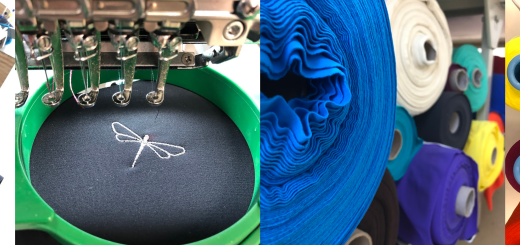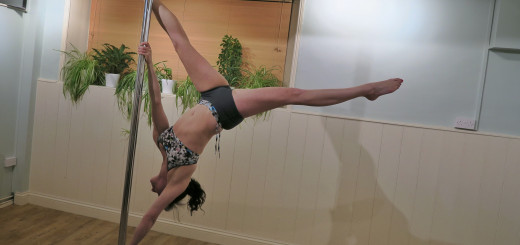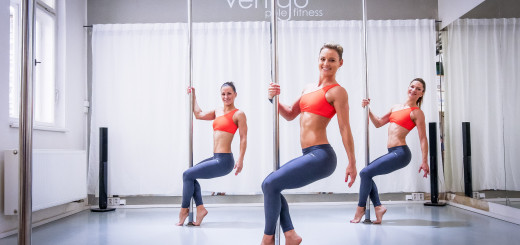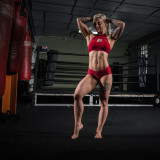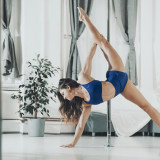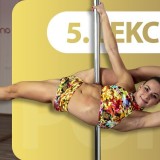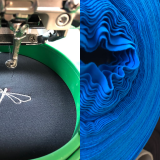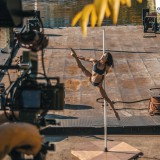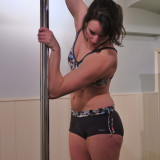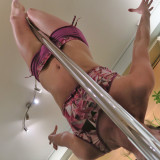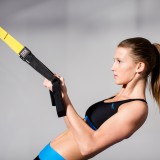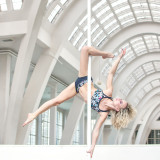How to Create the Perfect Dance Studio in Your Home
Whether you’re taking beginner dancing lessons or you’re an avid ballroom dancer, dancing is an amazing activity anyone can enjoy no matter their age, size, or gender. If you have a passion for this incredible activity, chances are that you’re used to pirouetting around the living room or using your countertop as a barre.
A great way to make the most out of your dancing endeavors is to create your own at-home dance studio. While it might seem overwhelming to build a dedicated dance space, there are plenty of simple and hassle-free ways to design a dance studio suitable for every budget and household.
Dedicated dance enthusiasts require more than just mirrors and mats to perfect their skills. Factors such as location, materials, and how the room will be used should all be considered. Read on to learn how to build the best dance studio in your home.

Why Build a Dance Studio at Home?
Mastering your dance steps is much easier whenever you have a dedicated, convenient space to use. Making room for yourself to dance the day away is just as important as never missing dancing lessons. Following are just a few benefits of building your own dance studio at home:
- It’s relatively easy to set up, and you’ll most likely only need a few essential pieces of equipment (a barre for ballet dancing, a pole for pole dancing, etc.).
- You can create your dance space in any room you don’t regularly use.
- You’ll have a dedicated area for yourself to dance whenever you want.
- The space you design will serve as a blank canvas where you can work on your technique and move creatively.
Claim and Get Your Dance Room Ready
After you’ve decided to design your space, you can find plenty of dance room ideas to use as inspiration. Just remember to account for the practical things you’ll need to achieve a successful outcome. Here are a few basic things to keep in mind:
Location is Key
Make sure the location you designate as your dance studio offers enough room for you to dance, whether you’re into Zumba, interpretive dance, ballroom, ballet, pole dancing, or salsa. If possible, pick a room that’s far away from bedrooms so you won’t disturb others whenever you’re dancing to your favorite tunes. To keep the noise down, it’s also a good idea to try to pick a room on the first floor so you won’t have to worry about how much noise you’re making as your feet are dancing away.
Add in Lights and Mirrors
Lights and mirrors are essential to a home dance studio. As a dancer, you’ll need to easily see your form, especially since your instructor won’t be present to correct you. Mirrors can help you be more aware of how you move. When you’re able to glance in a mirror as you’re dancing, you might notice that your leg isn’t completely straight or that the position of one of your arms is slightly off. This important feedback can significantly help you improve your dance technique.
Combined with the proper lighting, mirrors also visually expand your space. You can purchase a couple of large mirrors at your local hardware store. If you’re looking for a cheaper option, consider putting several small mirror tiles together to create one large mirror. If space is limited, you can even purchase an over-the-door mirror or a portable standing option that you can easily move from area to area.
Purchase Any Extra Equipment You’ll Need
Anyone can break out into spontaneous dancing, but a proper dance studio requires special equipment. In some instances, dance equipment and apparel helps to create the right mood to encourage plenty of steps. In other cases, dance equipment is a necessity. For example, to dance ballet en pointe truly calls for a special pair of shoes.
When designing your dance space, be aware of the equipment you’ll need. If you’re going to practice ballet, make sure you have a barre and ballet shoes. Or, if you enjoy Zumba, purchase a pair of comfortable sneakers and athletic attire designed to support dance movements.
You may need extra training equipment to maximize your dancing sessions, too. Dance equipment often used by beginners and professionals alike include:
- Foot stretchers that enhance the arches and reduce injuries like sprains, tendonitis, and strains
- Portable and lightweight leg stretchers that improve range of motion and flexibility
- Dance toe pads that wrap snugly around the feet to protect against irritation and blisters
- Turn boards that help dancers become more accustomed to the feeling of turning multiple revolutions
Bring in Your Gym Equipment, Too
Your dance room might not be large enough to accommodate your bigger pieces of gym equipment like a treadmill, cross trainer, or exercise bike. However, you can easily stay in shape to keep your dance moves strong by squeezing in equipment like hand weights, resistance bands, and an ab roller.
Remember to stock your dance room with equipment that encourages recovery after your dancing sessions, too. A yoga mat doesn’t take up too much space and is great for stretching. You could also benefit from a foam roller or a massage ball to loosen up tight muscles.
Install a Good Sound System
Nothing encourages plenty of dance moves like the right music. You don’t necessarily need to invest a ton of money in a state-of-the-art surround sound system to blast your favorite tunes during each dancing session. A small stereo or portable speaker can do the trick, and you can move it around to different locations as needed.
Keep Your Feet Protected with the Right Flooring
Choosing a dance room with an ideal floor type is also important. Home dance studios shouldn’t be built in areas with concrete floors like garages or basements since these hard surfaces can cause joint pain. A place with wood floors might be the best option. However, if wooden floors aren’t an option for you, you can create your dance room in a space with concrete floors, as long as you install a padded wooden floor on top.
Even in a space with a hardwood floor, consider adding a thin layer of laminate or padding to ensure enough comfort and decrease slipperiness. If it’s within your budget, you can opt for the standard type of flooring in ballet studios called marley flooring. However, if you’re on a limited budget, there are many types of portable laminate floors that you can install anywhere, similar to mats.
Add the Finishing Touches with the Right Décor
To truly make your dance room your own, you’ll need the right décor to motivate and inspire you. Decorate your studio with dance posters or your own dance photos. You can even hang your used pointe shoes. Although you don’t want to overcrowd the room, adding some personal touches is always lovely.
Make the Most Out of Your New Dance Studio
Once you’ve added in all the right equipment and set up your new dance space exactly how you want it, take time to enjoy it daily. Here are a few suggestions to make the most out of your new dance room:
Explore New Dance Styles
Use your room to explore new dance styles that will keep your toes moving. Feel free to experiment with new rhythms like tango, Zumba, samba, or ballet to expand your knowledge base and boost your creativity.
Take Advantage of Technology
If you’re a passionate dancer, consider sharing your skills with others. You can use your dance studio to teach dancing lessons either in-person or remotely. You can also continue learning moves from the comfort of your home by using your laptop to take online dancing lessons.
If you’re like most dancers and you like to record your dancing sessions so you can improve on your moves, give your friends and family a break. With the right tools, you won’t need them to capture your videos any longer. Prop your laptop on a small table to record your awesome moves. You can also use your phone or digital camera instead. To take advantage of these options, purchase a tripod that will provide optimum height placement.
Let Go and Dance the Day Away
Most importantly, regularly take time for yourself to breathe, let go, and appreciate the art of complete freedom of movement. Few things can make you feel more empowered, passionate, and alive as dancing.
Whether you don’t live within close proximity of a dance studio or you just prefer a private area to practice your moves, building your own dance room will allow you to dance comfortably whenever you want. Hopefully, the above guide has explained everything you need to know about creating your dream at-home dance studio.

